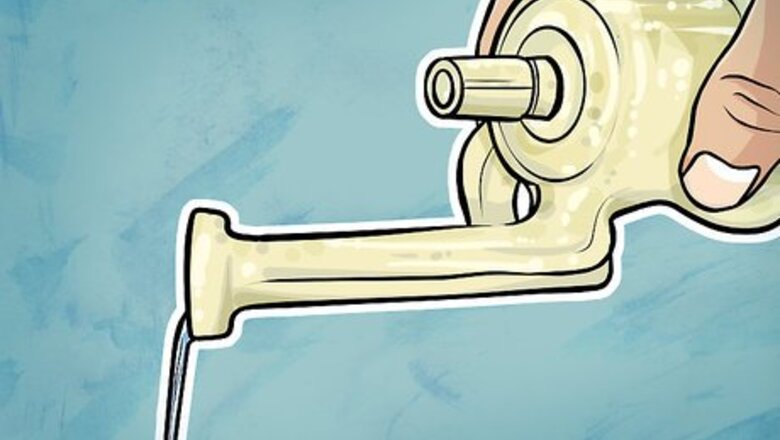
views
Cleaning the Pipe
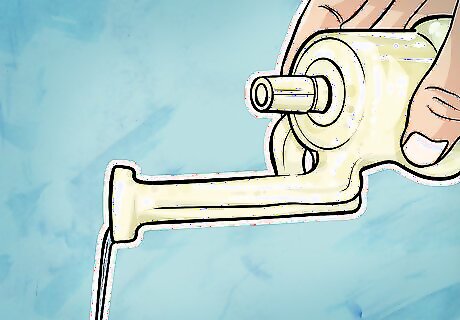
Drain the dirty water out of the pipe. Before you begin cleaning your smoking pipe, you’ll want to make sure it’s completely empty. Pour the used water down the sink and shake any remaining moisture out of the pipe. Remove the stem and set it aside for now—you’ll be cleaning this separately later. It’s a good idea to always refill your pipe with fresh water after every use.
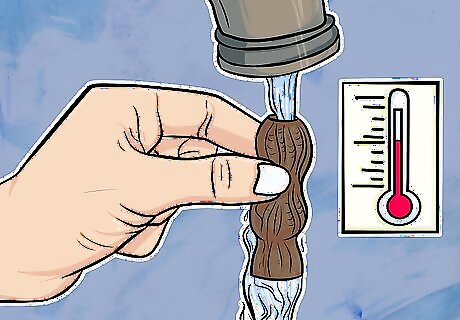
Rinse the pipe inside and out with hot water. Turn the pipe under the stream as you rinse and let the water run through the top and out the opening for the stem. This will help flush out loose particles and wash away residue that hasn’t yet had time to fully set up on the walls of the pipe. Hot water will help further loosen gunk and grime. Glass pipes will be slippery when wet, so be careful not to drop them.
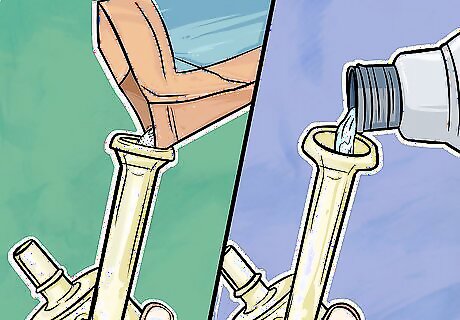
Fill the pipe with rubbing alcohol and salt. Pour the alcohol in slowly through the top of the pipe. A good rule of thumb is to fill the pipe to roughly the same level as the water line. Add a couple spoonfuls of a coarse-grained salt like Epsom, kosher or raw sea salt. Aim for about a 2:1 ratio of alcohol to salt. Isopropyl alcohols with a higher purity (between 91-99% is ideal) will work best for cleaning and sanitizing. Salt that comes in large, coarse pieces won’t dissolve as quickly when immersed in liquid, making it more effective as an abrasive.
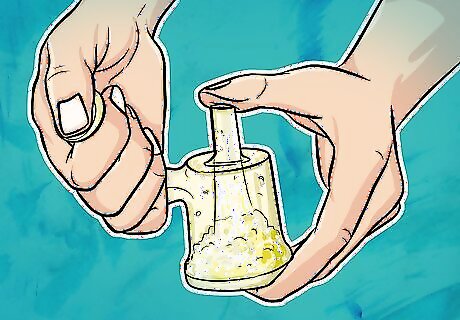
Shake the pipe vigorously to clean the inside. Place your thumbs over the openings of the pipe while you shake. As the solution sloshes through the pipe, the alcohol will kill any bacteria present and sterilize the walls of the inner chamber while the salt flakes scour stains and residue from the glass. You can also use another type of object, such as a cotton ball or cork, as a stopper for the openings. For especially dirty pipes, leave the solution to soak for about half an hour before you begin shaking.
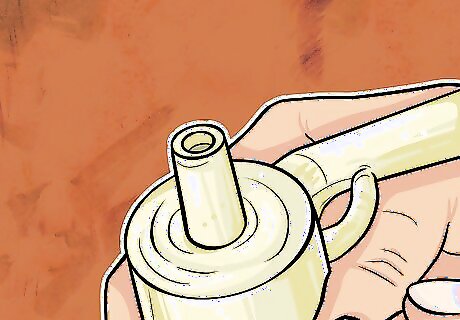
Use a Q-tip to reach inaccessible spots inside the pipe. Shaking the alcohol-salt solution through the pipe should take care of the worst of the buildup and discoloration. If any problem areas remain, you can deal with them directly by inserting a Q-tip through the one of the openings and scrubbing them by hand. By the time you’re finished, your pipe will be spotless. Depending on the size and shape of your pipe, you might also be able to use a pipe cleaner or toothbrush to spot-clean. Pipe cleaners are especially useful because they can bend around tricky corners and contours.
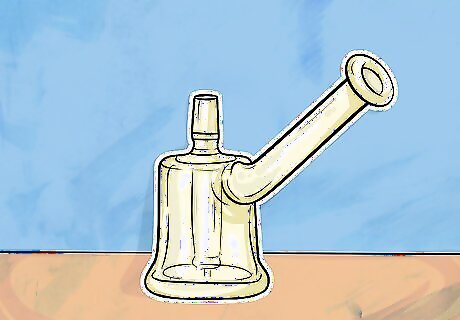
Rinse the pipe again. Clear away all the dirt and grime dissolved by the alcohol-salt solution. Don’t forget to wipe off the outside of the pipe as well to remove dust and fingerprint smudges. Blot the pipe gently with a microfiber towel, or leave it to air dry for a few hours before refilling it. If your pipe still isn’t clear after the first cleaning and rinsing, repeat the process using fresh solution.
Cleaning the Bowl and Stem
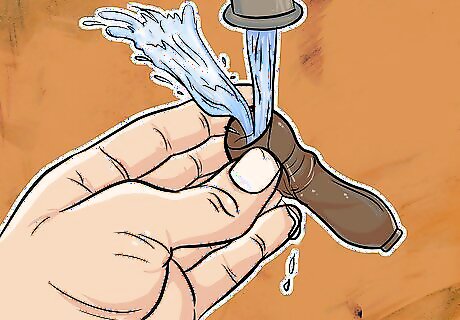
Wash and wipe down the stem. After you’ve finished cleaning the body of the pipe, grab the stem and run some hot water over it. If need be, give the stem a preliminary scrubbing using a clean paper towel. Pay particular attention to the bowl, where the residue will be thickest and most stubborn. Since the stem is so small and narrow, it’s easiest to clean it separately. Fortunately, this is even quicker than cleaning the pipe itself. Scrape the inside of the bowl with a toothpick or paperclip to chip away at thick residue that’s cemented in place.
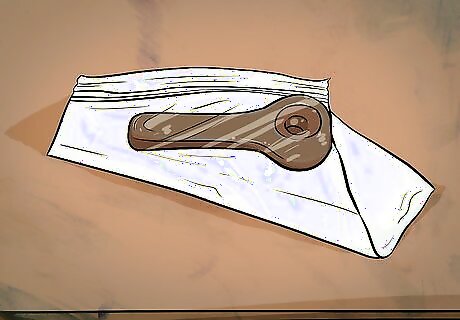
Place the stem in a small Ziploc bag. Position the stem in the bottom of the bag, leaving the top open wide. The stem won’t hold water the way the pipe does, so it will need to be cleaned in a separate container. You could also use a lidded Tupperware container to hold the stem. Just make sure the material is not hard enough to break any delicate glass pieces. If the stem you’re using is comprised of multiple parts, disassemble it and clean each component separately to avoid damaging them.
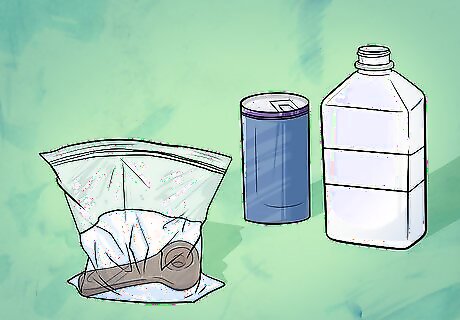
Fill the bag with alcohol-salt solution. Again, use about one part salt to two parts alcohol. When you hold up the bag, the stem should be completely submerged in the solution. Carefully squeeze excess air out of the bag and close the top. Double check that the bag is securely shut before you proceed. There should be enough space in the bag for the alcohol-salt solution to move around freely. If any part of the top of the bag remains open, you’ll end up with a big mess on your hands.
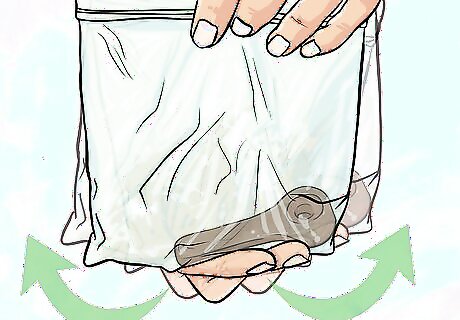
Slosh the bag until the stem is clean. Grip the bag by the top and bottom and shake it from side to side. As you shake, massage the stem lightly with the tips of your fingers. This will create more friction to rub off persistent residue. For bowls that are severely stained or have a lot of buildup, let the stem soak for 15-30 minutes. Be careful not to handle the bag too forcefully, or it might leak or burst open.
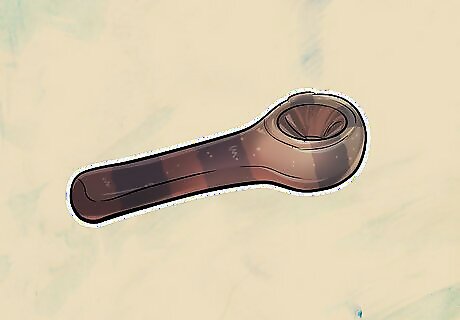
Remove and rinse the stem. Open the bag and pour out the dirty alcohol-salt solution. Retrieve the stem and wash it under hot water once more. Place the stem alongside the pipe to air dry. Allow the pipe and stem to dry completely before using them. Lingering moisture can lead to mold growth and unpleasant odors, which can have an affect on the quality and flavor of the smoke.
Maintaining Your Pipe
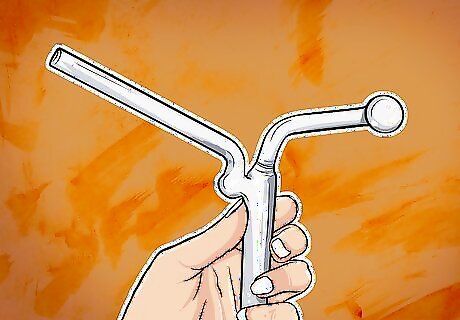
Handle your pipe carefully. Use a light touch when holding or moving your bubbler to avoid an accident. This is especially important for pipes made from materials like glass and ceramic, which have a tendency to scratch and may shatter completely if dropped or mishandled. Repairing or replacing a pipe can be expensive, so the best way to deal with accidents is by preventing them altogether. Set your pipe on a small pad or coaster when it's not in use so that it doesn't come into contact with hard surfaces. Store your pipe somewhere where it won't be in danger of falling or getting stepped or sat on. Consider investing in a protective sheath or hard-shelled storage case if you smoke frequently or plan on doing any traveling with a breakable pipe.
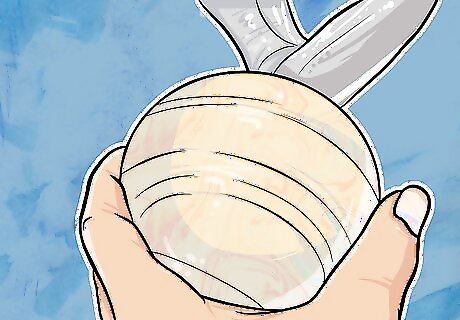
Keep mold from moving in. The inside of your pipe is warm and moist, making it an ideal breeding ground for bacteria. Clean and disinfect your pipe regularly to fight off mold growth. Otherwise, you could be looking at slimy, discolored residue, foul odors and a generally unpleasant smoking experience. Refilling your pipe with fresh water every time you use it will help create a less hospitable environment for bacteria and mold. There's no good way to remove stuck-on mold other than by scrubbing it, which can be tricky if you have a small or oddly-shaped pipe.
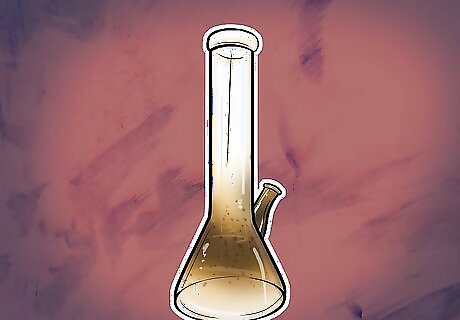
Prevent hard water stains. Over time, ordinary tap water can leave unsightly mineral deposits on the walls of your pipe. These deposits may also contain traces of chemicals like chlorine and fluoride, which you definitely don't want anywhere near your lungs. By using filtered or distilled water, you can eliminate harmful contaminates from your pipe while also enjoying a purer, smoother smoke. For best results, you should also rinse your pipe with purified water after cleaning. Keep a pitcher of filtered water on hand so that you'll always have a ready supply when it comes time to refill your pipe.




















Comments
0 comment